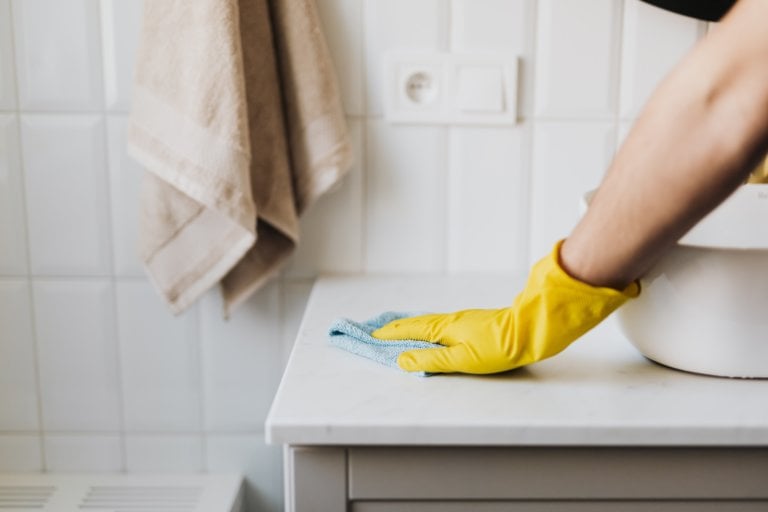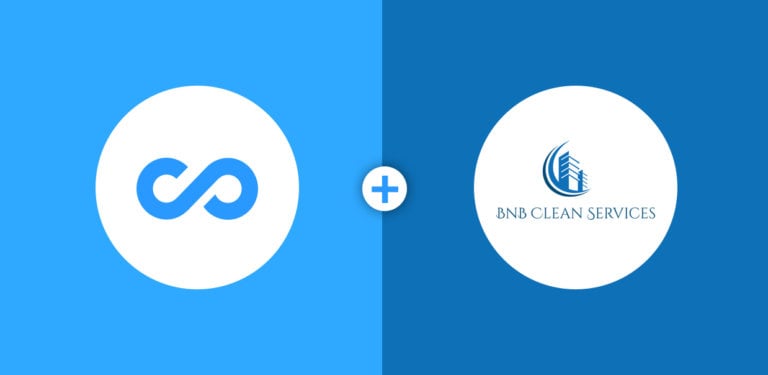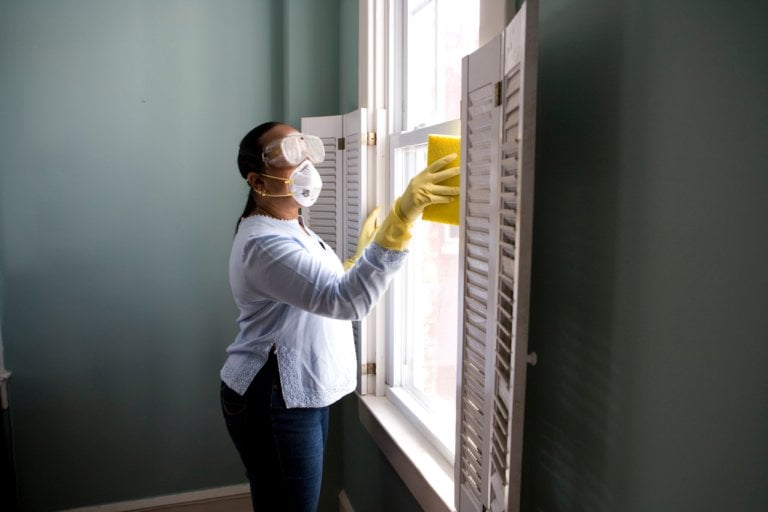Starting a cleaning business is a great idea. The startup costs are low, and the potential for profits is high. Follow these tips to learn step-by-step how to start a cleaning business and how to run your business once it’s set up.
Cleaning services have smaller up-front costs than many other industries. Since little capital is needed, you have an opportunity to start quickly.
In this article, we’ll cover the basic steps you need to start a successful cleaning business.
Choose Which Cleaning Services You’ll Offer
The first thing you’ll need to do is choose exactly what types of cleaning services you’ll offer. This will allow you to excel in specific areas and market to your target clients.
Here’s a list of 10 cleaning services you may want to specialize in:
- Residential cleaning: This includes general house cleaning services such as dusting, vacuuming, mopping, cleaning bathrooms and kitchens. You can also offer deep cleaning services, move-in/move-out cleaning, and seasonal cleaning like spring cleaning.
- Commercial cleaning: Commercial cleaners offer services for business offices, retail stores, and other commercial buildings. This can include regular cleaning as well as specialized services like window cleaning, floor waxing, and carpet cleaning.
- Window cleaning: This can be offered both for residential and commercial properties and might include both interior and exterior window cleaning.
- Green cleaning: Using eco-friendly and non-toxic cleaning products and methods. This is becoming increasingly popular as more customers are concerned about the environmental impact and health implications of cleaning chemicals.
- Carpet and upholstery cleaning: Involves deep cleaning of carpets, rugs, and furniture upholstery, often using special equipment like steam cleaners.
- Window cleaning: This can be offered both for residential and commercial properties and might include both interior and exterior window cleaning.
- Event cleaning: Providing cleaning before, during, and after events such as weddings, conferences, and parties.
- Sanitization and disinfection services: These services focus on creating a safe and germ-free environment.
- Move-in/move-out cleaning: This type of cleaning focuses on preparing a home for new occupants or cleaning up after ones who have just moved out. This includes deep cleaning of all rooms, cleaning inside cabinets and drawers, and ensuring appliances are spotless
- Post-construction cleaning: This type of cleaning deals with the removal of construction debris, dust, and leftover materials. It includes thorough cleaning of all surfaces, floors, and fixtures.
When deciding on what services to offer, consider:
- Demand: Look into what services are in high demand in your area. For example, residential cleaning might be popular in suburban areas, while commercial cleaning could be more in demand in business districts.
- Skillset: Ensure you and your staff have the necessary skills and training for the services you plan to offer.
- Competition: Research other cleaning businesses in your area to see what services they offer and identify any gaps in the market.
- Regulations: Check for any local regulations regarding cleaning services, especially for more specialized areas like biohazard cleanup or green cleaning.
Depending on the scale of your cleaning business, the initial startup costs can be pretty low. As your company expands and generates more revenue, you can reinvest in your company for more supplies or employees.
Build a Budget and Secure Your Finances
The good news is that starting a residential cleaning company in the US is considered one of the more affordable business ventures. It can cost you anywhere from $650-$10,000, with an average of around $3,500 to get your business off the ground. You’ll need to pay for business licenses, insurance, equipment and supplies, employee uniforms, and office space.
But don’t worry if you don’t have the startup capital yourself. Here are some funding options to consider:
- Friends and family: Borrowing from friends and family can be a good option if you have a strong relationship with them and they are comfortable lending you money. Be sure to draw up a formal loan agreement that outlines the terms of the loan, including the interest rate and repayment schedule.
- Small business loans: Banks and credit unions offer a variety of small business loan options. These loans can be used for a variety of purposes, such as purchasing equipment, inventory, or marketing. Be sure to shop around for the best interest rates and terms.
- Equipment loans or leases: If you need to purchase expensive cleaning equipment, you may be able to finance it through a loan or lease from an equipment financing company.
- Business credit cards: Business credit cards can be a good option for covering small business expenses. However, be sure to use them responsibly and pay your balance off in full each month to avoid high-interest charges.
Keep in mind that banks, investors, and insurance agencies will want proof of your company’s finances, so be sure to include this information in your business plan.
Pro Tip
Check out the Small Business Administratio for low-interest loans with flexible repayment terms.
Choose A Business Name & Logo
As a business owner, you’ll need to put time into deciding on the name of your business and its corresponding logo. Your cleaning company will be around for the long haul, so the name and logo should be something timeless.
Choose a business name that reflects your services and values while exploring your creativity. For example, if your business only uses eco-friendly cleaning products and you want to convey that in your business name, try something like “Green Cleaning.”
You can hire a graphic designer to create a company logo for you or create one yourself. A quick Google search for “logo makers” will provide you with several options, many of which you can use for free.
Register Your Cleaning Business
Before you can launch your cleaning company, you need to register your business and choose a business structure. This is important for obtaining a cleaning business license, opening a company bank account, applying for loans, and paying staff.
Pick the company structure best suited for you in terms of liability and taxes. You may want to consult with an attorney to figure out the best option for you, but here are a few of the most common business types for cleaning companies:
- Sole Proprietorship: This is the simplest and most common structure for small businesses, especially those starting out. In a sole proprietorship, there is only one owner who is personally liable for all the business’s debts and obligations. This structure is easy to set up and manage, but it offers no personal liability protection for the owner, meaning that business and personal finances are intertwined.
- General Partnership: This business structure has two or more owners who share responsibility for managing the business and are personally liable for its debts. This structure can be beneficial for sharing resources and expertise, but all partners carry the same level of risk.
- Limited Liability Company (LLC): This is a popular choice for cleaning companies as it offers a balance between ease of management and personal liability protection. An LLC is a separate legal entity from its owners (called members). This means that the members’ personal assets are generally shielded from liability for business debts.
- Corporation: This is a more complex structure typically suited for larger businesses. A corporation is a separate legal entity from its owners, also referred to as shareholders. It offers the strongest personal liability protection but also comes with increased regulations and formalities.
- S Corporation: This is a special type of corporation that can elect to be taxed differently from a traditional C corporation. S corporations offer some of the same benefits as LLCs in terms of pass-through taxation and limited liability protection, but they come with stricter ownership limitations.
Choose Your Rates
Before publicizing your hourly rates to the public, it’s essential to check what your competitors are charging. There is no one-size-fits-all pricing solution. Check competitors based on location, services, target clients, distance to the job site, and whether it’s a one-off job or a consistent client.
You can offer house cleaning estimates to potential clients to better understand how much a job will cost before starting. A good practice so as to not waste your time is to charge a flat fee for the estimate, and if they book you, credit the fee back to their bill.
Make sure you have an easy way to bill your clients so that you get paid for your work promptly.
Pro Tip
To learn more, check out this complete article on how much to charge for cleaning services in 2025.
Purchase equipment
Equipping yourself with the right supplies is crucial for running a successful cleaning business. To ensure your business is prepared for various tasks, consider investing in both multi-purpose and specialized products.
Here are some essentials to get you started:
- Multi-purpose cleaners: Tackles everyday dirt and grime on most surfaces.
- Glass cleaner: Leaves windows and mirrors streak-free and sparkling.
- Disinfectants: Essential for sanitizing surfaces in kitchens and bathrooms.
- Bathroom cleaners: For tougher jobs in bathrooms, consider specific cleaners for toilets, showers, and tubs.
- Floor cleaners: Different floor types require specific cleaning solutions. Choose appropriate cleaners for hardwood floors, tile, and carpets.
- Microfiber cloths: These are excellent for general cleaning and polishing as they trap dust and dirt effectively without scratching surfaces.
- Sponges and scrub brushes: Use these for tougher cleaning jobs on counters, appliances, and grout.
- Vacuum cleaner: A good quality vacuum cleaner is a must-have for carpets, upholstery, and hard floors.
- Trash bags and rubber gloves: These are everyday necessities for any cleaning job.
Remember, this is just a starting point. You can customize your cleaning supplies based on the specific services you offer and the types of clients you target.
Hire the Right Employees
Hiring reliable cleaning staff starts by targeting the right skills and experience during the hiring process.
First, clearly define roles and responsibilities for cleaning jobs. Then, use online job boards to look for individuals with a strong work ethic, attention to detail, and a commitment to providing excellent customer service. Make sure to ask behavioral questions during the interview process to get an understanding of how potential candidates will respond to real-world situations while on the job.
Before you hire staff, consider running background checks to ensure they’re trustworthy since your cleaners will be entering private property.
Brand and Market Your Cleaning Business
Building a recognizable brand and a strong marketing strategy are both crucial for standing out in the cleaning industry.
Start by developing a clear brand identity that reflects your brand values and resonates with your target market. This includes everything from your brand color choices to your logo and the tone of voice you use in your market assets.
It’s important to be consistent with your branding across all marketing materials to build trust and recognition and to help your business stand out from the competition.
Once you’ve solidified your branding, you can develop a marketing strategy. Here are some tips:
- Leverage online marketing by creating a user-friendly website and establishing a strong social media presence showcasing your services and positive customer reviews.
- To get your business off the ground and find new customers, consider offering competitive rates and targeted promotions to attract new clients.
- Monitor online review sites, such as Yelp and Google. Make sure to respond to any negative reviews so customers can see you value their input and do your best to correct any mistakes.
- Encourage satisfied customers to leave positive reviews by offering a discount on their next cleaning.
This Might Interest You
If you plan to specialize in commercial cleaning, check out this article on 10 Niche Businesses That Need Cleaning Services in 2025.
Utilize Technology
It isn’t easy to start a business or keep it running, but it’s certainly easier with the right digital tools. Connecteam, for example, is an award-winning employee management app designed specifically for the non-desk workforce that can help you streamline day-to-day operations.
You can easily handle employee scheduling, training, communication, task management, payroll, and much more all from one place, allowing your employees to remain engaged and connected to the company even while on the go.
For more insights into cleaning business software that can help you grow your business, check out our full review on the best cleaning business solutions available in 2025.
Here are some of Connecteam’s key features that can help you run your cleaning business more efficiently:
- Employee scheduling tools: With Connecteam’s employee scheduling app, you can create cleaning job schedules manually with a drag-and-drop tool and customizable templates. View time off requests and employee preferences, assign job sites, and include all important notes and checklists right in the app. You might want to read our guide to the best cleaning checklist apps to simplify managing tasks, streamline supply tracking, and keep your cleaning business organized.
Or, use the auto-scheduling feature to create schedules for you. The app considers employee availability and preference to create schedules for you in seconds. - Time clock with GPS: With Connecteam’s employee time clock app, your cleaning crew can clock in and out from jobs with just one tap from their phones, and the app creates digital timesheets for payroll.
The real time GPS tracker also sets a perimeter around job sites so staff can only clock in and out when at their job sites, so you can prevent time theft.

- Employee onboarding and training: Onboard new cleaners quickly and efficiently and create customized training courses for employees to complete right from their phones.
- Task management: Allocate one-time and recurring tasks to your staff in just a few clicks with Connecteam’s task management app. You can also include reminders to make sure your staff perform their tasks on time and even monitor their progress.
- Team communication: Connecteam comes with online team chat, a social-media style newsfeed for company updates, and a company employee directory to make communicating with your cleaning staff simple.
Share updates right away with one-on-one or group chats and post announcements for everyone to see. Employees can like and respond with messages or emojis, too.

- Document storage and in-app knowledge base: Easily store and send team documents to your cleaning crew from the Connecteam app. Cleaners can view these documents and even sign them right from their phones, eliminating the need for paper forms.
Store important training materials, procedural documents, and cleaning supply safety information in the company knowledge base. Materials are always accessible in the app so employees can view them directly from job sites, whenever they need.
In addition, Connecteam offers excellent customer service, a user-friendly interface, workforce management tools, and complete customizability.
Connecteam’s paid plan starts at just $29 per month for up to 30 users, and small businesses with fewer than 10 users can access the app completely free.
Get started with Connecteam for free today!
FAQs
How do I get clients for my cleaning business?
First, you have to decide on your ideal clients. Once you understand your potential customers well, you have to think of the best way to market to them. You can market through newspaper ads, flyers delivered door to door, or digitally.
Is starting a cleaning business worth it?
Starting a cleaning business can be a rewarding venture. The demand for cleaning services is steady, and you can be your own boss. However, it requires hard work, planning, and a commitment to excellent customer service. If you’re organized, detail-oriented, and enjoy creating clean spaces, then a cleaning business could be a great fit for you.
What is the most profitable type of cleaning business?
Here’s a list of some of the most profitable types of cleaning businesses, categorized by factors that contribute to profitability:
- Carpet and upholstery cleaning: Deep cleaning carpets and upholstery often requires specialized equipment and expertise, allowing you to charge premium rates.
- Window cleaning: Cleaning high-rise windows or large commercial buildings can be lucrative, especially with long-term contracts.
- Pressure washing: Pressure washing services for driveways, patios, and exteriors can be efficient and bring in good profits.
- Post-construction cleaning: Cleaning up after construction projects often involves heavy-duty cleaning tasks, justifying higher prices.
- Specialty cleaning: Services like medical facility cleaning, biohazard cleaning, or duct cleaning cater to specific needs and can command premium pricing.
- Commercial cleaning: Regular cleaning contracts with offices, buildings, or retail spaces provide predictable income and potential for growth.
- Janitorial services: Daily or nightly cleaning services for businesses can offer high volume and recurring revenue.





